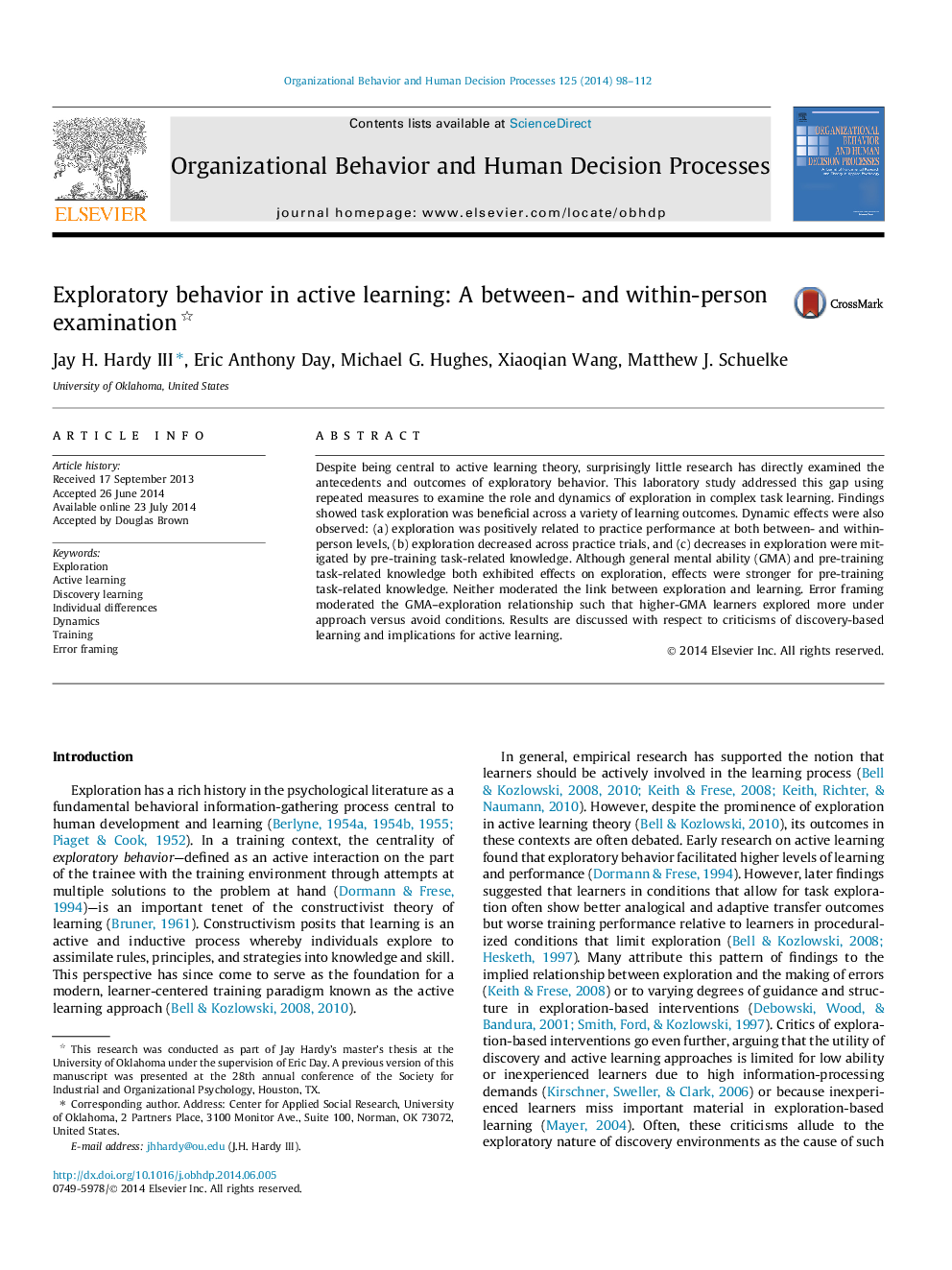| Article ID | Journal | Published Year | Pages | File Type |
|---|---|---|---|---|
| 888534 | Organizational Behavior and Human Decision Processes | 2014 | 15 Pages |
•Exploration was positively related to learning outcomes in active learning training.•Exploration was more strongly related to pre-training task-related knowledge than to general mental ability.•Exploration decreased across practice, particularly for those low in pre-training task-related knowledge.•The effects of general mental ability on exploration were stronger under error-approach than error-avoid instructions.•Capability did not moderate the exploration–learning relationship.
Despite being central to active learning theory, surprisingly little research has directly examined the antecedents and outcomes of exploratory behavior. This laboratory study addressed this gap using repeated measures to examine the role and dynamics of exploration in complex task learning. Findings showed task exploration was beneficial across a variety of learning outcomes. Dynamic effects were also observed: (a) exploration was positively related to practice performance at both between- and within-person levels, (b) exploration decreased across practice trials, and (c) decreases in exploration were mitigated by pre-training task-related knowledge. Although general mental ability (GMA) and pre-training task-related knowledge both exhibited effects on exploration, effects were stronger for pre-training task-related knowledge. Neither moderated the link between exploration and learning. Error framing moderated the GMA–exploration relationship such that higher-GMA learners explored more under approach versus avoid conditions. Results are discussed with respect to criticisms of discovery-based learning and implications for active learning.
